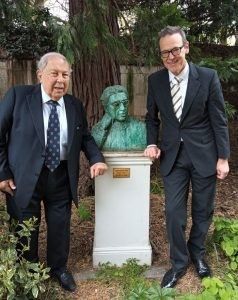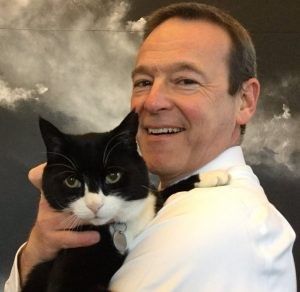OVERSEAS students who return home after three to five years in the UK should not be included in the migration statistics, Lord Simon McDonald, master of Christ’s, academically one of the strongest colleges in Cambridge, has said.
“I think the idea that student numbers can contribute to overall migration numbers is crazy, because this is a sort of migration that is wholly to our benefit,” he told Eastern Eye.
Lord McDonald argued that overseas students “want as good an education as possible to use in their professional life in their home country. So why, when they’re here for three to five years, do they count as migrants? We have lumbered ourselves with a system which at the moment treats students as immigrants.”

His views are the opposite of those held by the government and especially the home secretary, Suella Braverman. Ministers wants to reduce net migration into Britain by preventing students from enrolling for degrees that officials consider a ruse to get into the UK, and also cutting the number of their dependants.
McDonald took over in September 2022 as master of Christ’s, where famous alumni over the past 500 years include the poet John Milton; the scientists Charles Darwin, Jagadish Chandra Bose and Alexander Todd; and Yusuf Hamied, the chairman of the Indian pharma giant, Cipla, who has probably been the college’s most generous benefactor.
Previously the permanent under-secretary at the Foreign and Commonwealth Office and head of the diplomatic service from 2015-2020, McDonald now sits in the Lords as a crossbencher. Relaxing in the drawing room in the Master’s Lodge at Christ’s, he talked about UK-India relations, the Free Trade Agreement (FTA) – he doesn’t have the sense it’s imminent despite optimistic noises from London and Delhi – and teaching of colonial history in schools (he read history as an undergraduate at Pembroke College, Cambridge).
According to the peer, Britain should no longer attempt to project itself as a great military power, but focus instead on soft power. This is, in fact, the theme of his new book, Beyond Britannia, which he wrote in four months earlier this year (“because I have been thinking about it for a long time”).
Due out in November, the book is “about the foreign policy I think we should have,” he explained. “Our foreign policy is in some ways delusional, that we as a country, especially as a governing class, think we are more powerful in the world than we are. We’re still completely obsessed by hard power, about sending ships to the other side of the world.
“I make a case for soft power over hard power. I make a case for modesty over grandiloquence. The military is very, very important. But our expeditionary capacity is not very great and does not need to be very great. And that is a message that will be unwelcome.”
McDonald deals with the observation famously made in 1962 by Dean Acheson, a former US secretary of state, that Britain had “lost an empire, and failed to find a role”.
He thought this was no longer true when Britain embraced a “European destiny”.
However, post Brexit, “that solution has disappeared. So, what precisely is our role? I think Acheson is correct again. We have not found a role. We have rejected one possibility, but not found an alternative.” He is “not surprised” colonial history is not taught in schools because the subject is “very sensitive” and “can be argued passionately both ways”.
But at Cambridge, he chose the option on the “history of colonisation and decolonisation” and “one of the essays I wrote was about the Partition of India”. He was impressed by the lecturer who believed it would have been better for Hindus and Muslims had India remained “a unitary state” after the British left.
McDonald finds it “ludicrous” that Winston Churchill has become such a divisive figure. “Clearly, he was a flawed man, nobody would deny that. But, just as clearly, he played a pivotal role in defeating the most appalling threat to civilisation, to Europe, in the whole of the 20th century. So that deserves to be celebrated – no matter his weaknesses.”
Born in Salford, on March 9, 1961, he joined the Foreign Office at 21 in 1982, and served in Jeddah, Riyadh, Bonn and Washington, and as ambassador in Israel as well as Germany. After Germany, “it was formally proposed that I should go to India” as high commissioner, but instead he was promoted to permanent under-secretary at the Foreign Office and head of the diplomatic service. So, India was “the posting that never happened for me. It almost did, but then didn’t. I wanted to work there.”
He left the Foreign Office in September 2020 when it merged with the Department for International Development (DfID) to become the Foreign, Commonwealth and Development Office (FCDO).
McDonald and his wife Olivia, whose father, Patrick Wright, was also permanent under-secretary at the Foreign Office, have two sons and two daughters. He has been to India on several official trips and met Manmohan Singh, when he was prime minister; S Jaishankar, India’s external affairs minister; and MK Narayanan, the country’s former national security adviser.
He has personally taken up the cases of Britons imprisoned in India and pressed for consular access.
Last Thursday (27), he spoke at length about UKIndia relations when he addressed the annual gathering in London of the World Zoroastrian Chamber of Commerce.
The bilateral FTA, “will happen very slowly”, McDonald said while speaking to Eastern Eye. He could be proved wrong, of course, but he added, “It doesn’t appear to me as though it’s on the horizon.”
He revealed: “It is now common practice that FTAs have human rights clauses. This is just a fact and have become common practice. And the key is reciprocity. It’s not that we are looking at you, it’s that we are looking at each other.”

With India, “all the efforts to have bilateral agreements, as far as I can see, flounder on the issue of migration and visas”, McDonald explained. “The present government is in favour of migration, but the key thing is it must be controlled. It must be the people we want, and the numbers we want. And, of course, the Indian government is very interested in a much looser regime between the country – so that is a deal breaker right now.”
Ideally, “the Brits would really like to be India’s partner of choice in Europe, so that when Indian companies are looking for a base in Europe, they would look first to the UK before anywhere on the continent. That when Indians are thinking of where to educate their children or conduct research, they think first of the United Kingdom rather than any place else in the west.
“And that Indians are making this choice because of the present British offer, rather than some weird sentimentality because of historic connections.
“So we make a contemporary case, not a historical case. And I think the British offer is strong. When you look at the City of London, when you look at the universities of the UK, when you look at the research sector in the UK, there’s a lot for India to connect with.”
But he is also sure the UK-India relationship will be shaped not by officials – but by Indians in the UK and in India.

